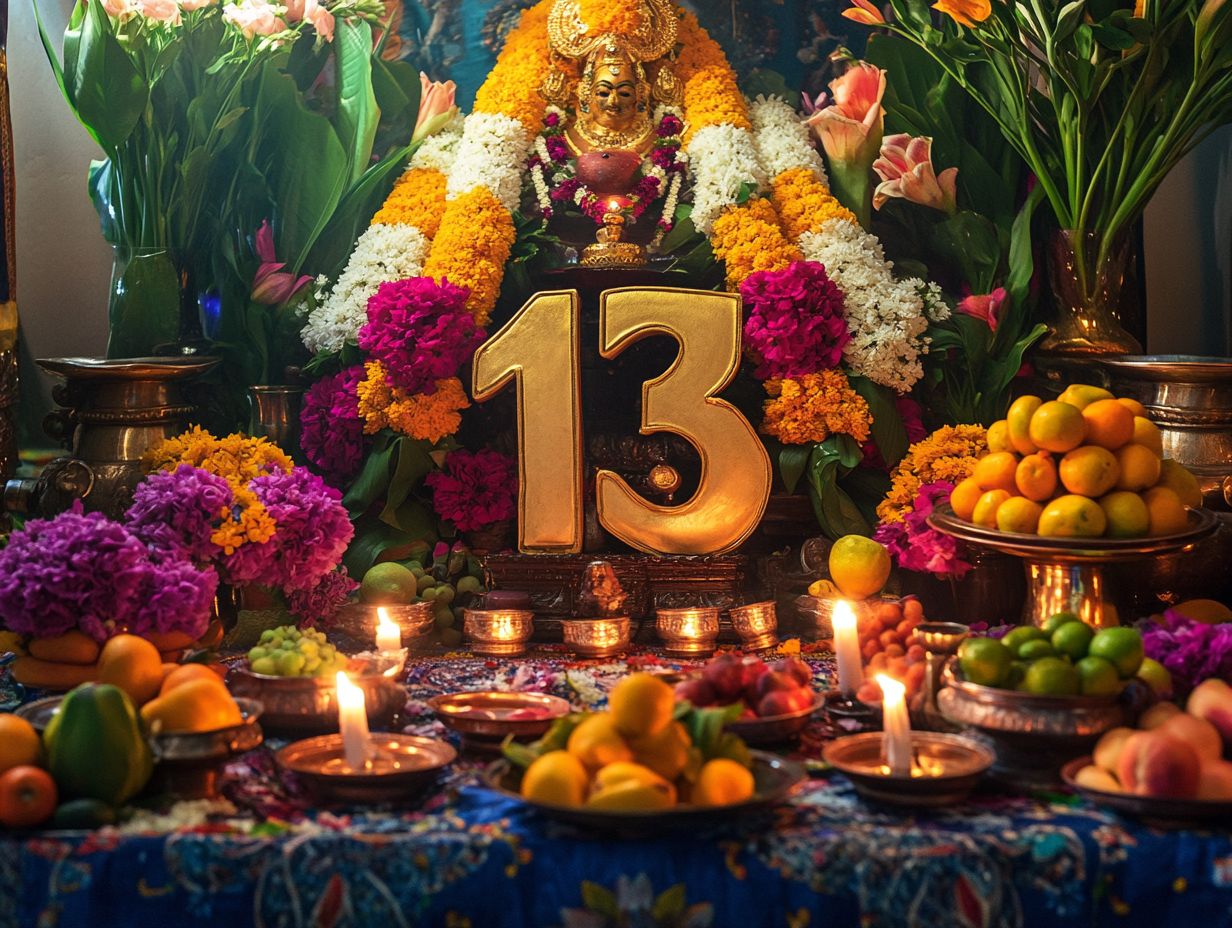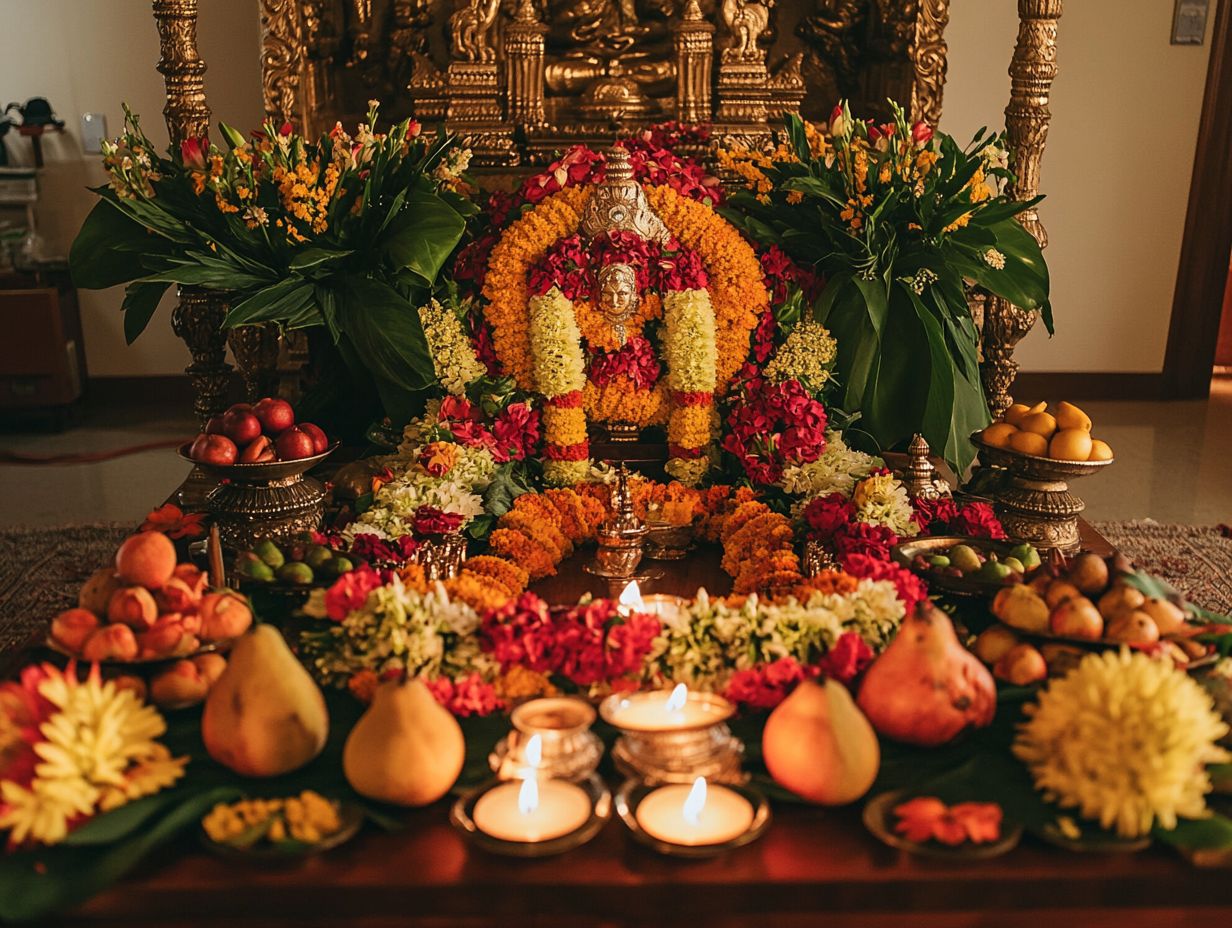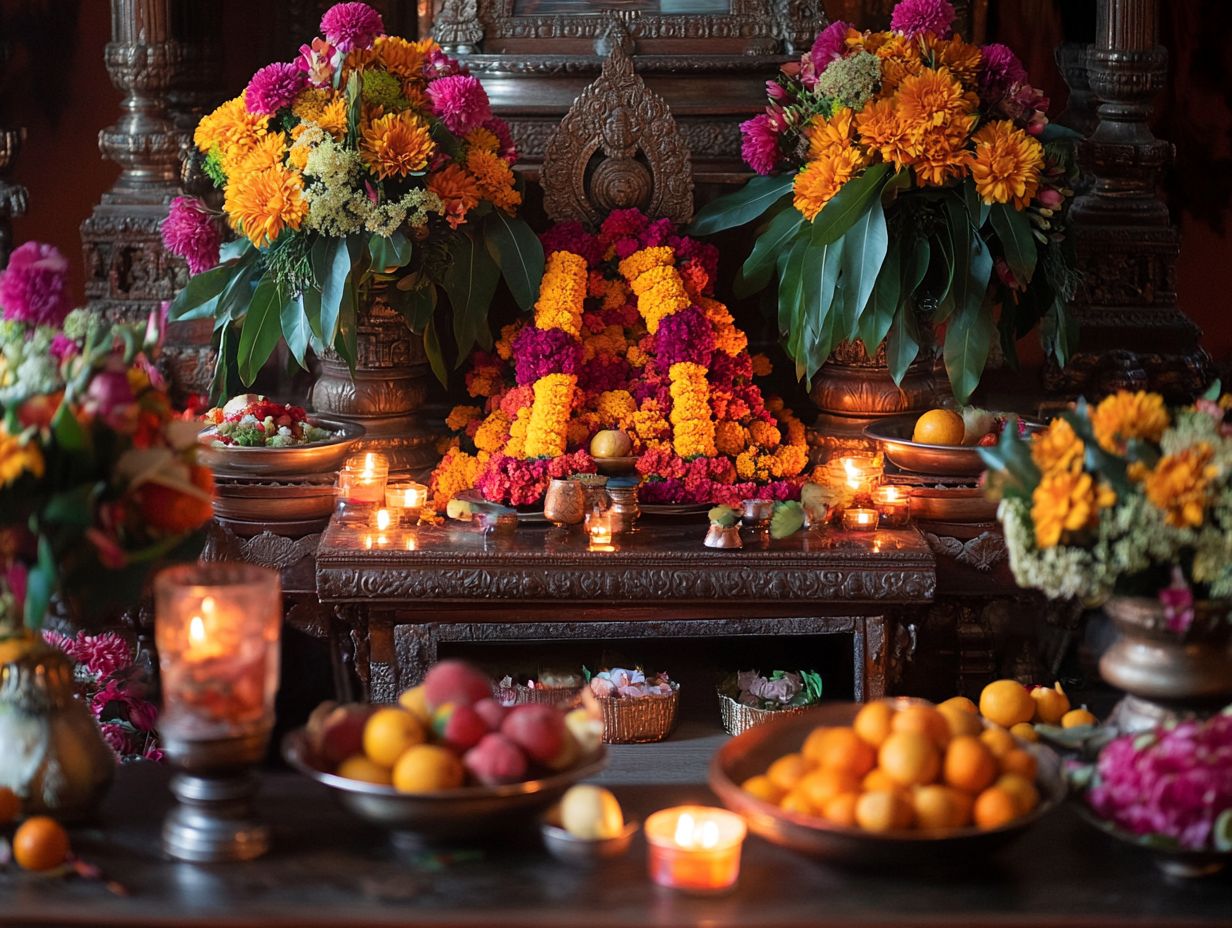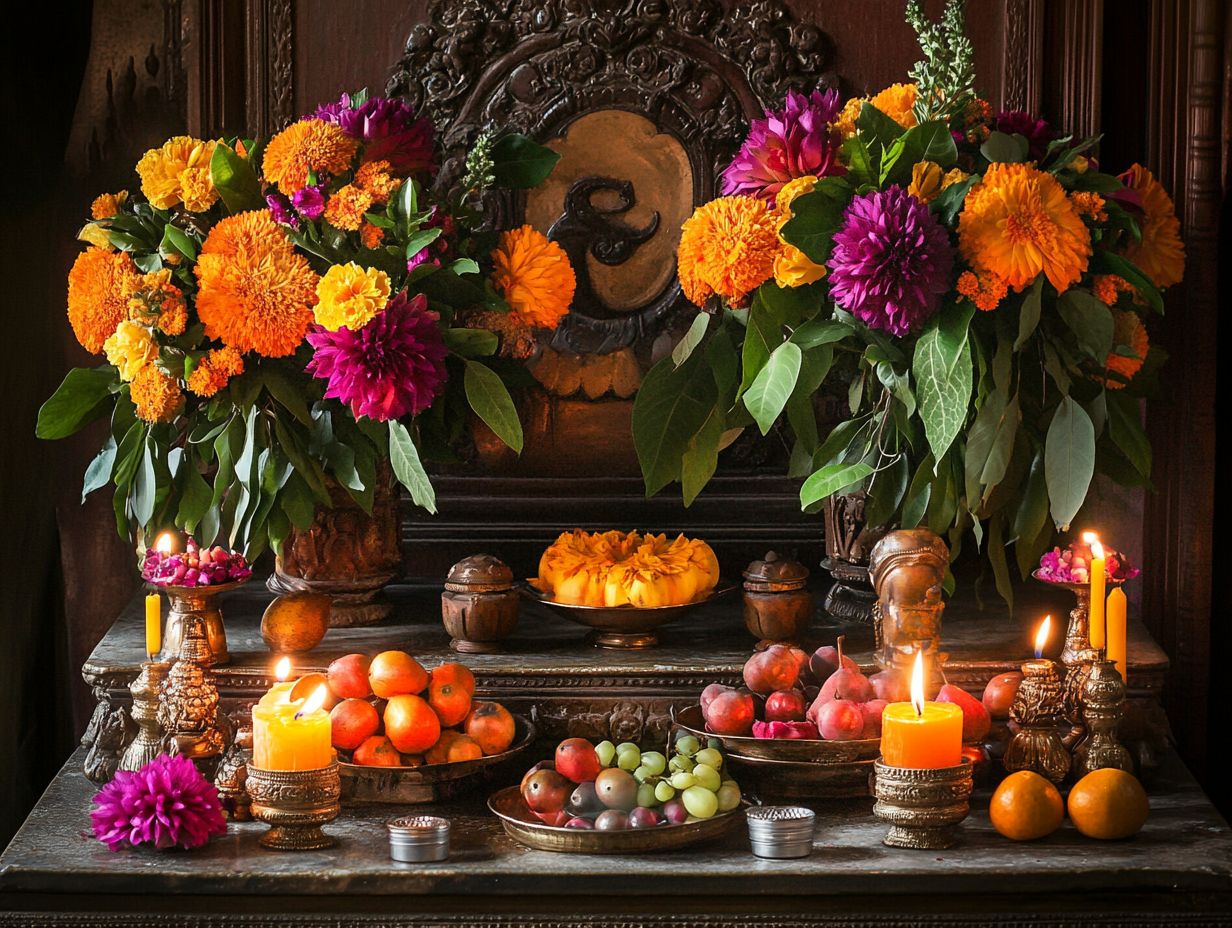Is Number 13 Unlucky in Hinduism?
The number 13, often referred to with a sense of superstitions and cultural beliefs, evokes a tapestry of reactions across various cultures. Yet, its significance in Hinduism proves to be particularly captivating. While some may label it as unlucky, the truth is far more intricate. This exploration delves into the multifaceted dimensions of the number 13 within Hindu belief, encompassing its myths, religious symbolism, and numerological meanings.
From the 13 important deities to the chapters found in the Bhagavad Gita, the number 13’s significance can be observed in Hindu traditions and Hindu spirituality. One can discern how this number is intricately woven into the fabric of Hindu spirituality and examine its reception in contemporary society. This inquiry invites readers to engage with the complex relationship between the number 13 and Hinduism, revealing a rich narrative that transcends simplistic interpretations. The cultural context in which the number 13 is viewed adds layers of myths and superstitions that shape religious beliefs and practices.
What Does Number 13 Represent in Hinduism?

The number 13 carries a rich and complex significance in Hinduism, deeply woven into the tapestry of cultural beliefs, religious texts, and spiritual philosophies.
Its interpretations often fluctuate between auspicious and inauspicious meanings, shaped by ancient traditions and contemporary perspectives. In the context of Hindu culture, the number 13 is occasionally perceived as unlucky, linked to superstitions that echo through societal norms and personal experiences.
Yet, it also occupies a notable position in rituals and astrology, where its symbolism can represent a profound understanding of karma, dharma, and the cosmic forces that shape one’s fate and destiny.
Is Number 13 Considered Lucky or Unlucky in Hinduism?
In Hinduism, the perception of the number 13 varies widely, oscillating between associations of misfortune and the possession of auspicious qualities, thereby reflecting the deep-seated beliefs and superstitions inherent in the culture. While many regard the number 13 as a harbinger of bad luck, others perceive it as a potential bearer of good fortune, a distinction that often depends on contextual factors and personal beliefs.
For example, in certain Hindu communities, the number 13 is intricately linked to the lunar cycle, with the thirteenth day, known as Trayodashi, holding particular significance for specific rituals and festivities. Furthermore, in the realm of astrology, the number 13 symbolizes transformation and change, weaving it into the larger cosmic narrative that encompasses notions of both good and bad luck.
Tales of deities and mythological events occasionally reference the number in a positive light, highlighting the intricate and nuanced relationship individuals have with this digit. As a result, people often navigate these contrasting interpretations based on familial traditions and personal experiences, leading to a richly woven tapestry of meanings surrounding the number 13.
What Are the Myths and Superstitions Surrounding Number 13 in Hinduism?
The myths and superstitions surrounding the number 13 in Hinduism unveil a rich tapestry of folklore that often signifies a deep-seated fear of 13 and misfortune. These cultural narratives illustrate how this number has been imbued with ominous meanings and negative connotations, resulting in various rituals and practices designed to mitigate its perceived negative influence.
In many communities, for instance, the 13th day of the lunar month assumes a special significance, frequently associated with the rituals of Shraddha, which are performed to honor deceased ancestors and embody traditional beliefs. This particular day, known as Trayodashi, may evoke a sense of anxiety, prompting families to engage in specific rites intended to ward off any ill fate.
Some individuals believe that undertaking significant events, such as weddings or housewarmings, on this date could invite unforeseen challenges, leading to a cautious avoidance of the number 13 in auspicious events planning. It is fascinating to observe how such beliefs penetrate daily life, influencing everything from social gatherings to the design of homes, thereby reflecting deep-seated cultural taboos and Hindu customs.
The Connection Between Number 13 and Hinduism
The relationship between the number 13 and Hinduism is deeply intricate, reflecting a rich tapestry of religious significance, spiritual symbolism, and the delicate interplay of fate and spirituality.
In the realm of Hindu cosmology, numbers carry sacred meanings, and the number 13 is no exception. It is frequently associated with auspicious rituals, spiritual practices, and the divine will as revealed through astrological insights.
Within Hindu culture, this number embodies a duality of acceptance and rejection, as it weaves itself into the broader concepts of karma and dharma, ultimately influencing individual destinies in profound ways.
What Are the Religious Significance and Symbolism of Number 13 in Hinduism?

In Hinduism, the religious significance of the number 13 is rich with number symbolism, encapsulating both auspiciousness and inauspiciousness. This duality underscores the intricate nature of number symbolism within Hindu culture, wherein the number may signify fortunate days for specific rituals while simultaneously serving as a cautionary marker in others.
For example, the thirteenth day of the lunar month, known as Pradosh, is revered as an auspicious occasion for performing various religious rites and ceremonies, particularly those honoring Lord Shiva. In stark contrast, the number can also invoke a sense of apprehension; certain beliefs advise against undertaking significant events, such as marriages, on the 13th day of the month, perceiving it as potentially inauspicious.
Religious texts further illuminate this complexity, offering interpretations from scriptures that suggest the number 13 may symbolize transformation and renewal, while also bearing warnings of unfavorable numbers. By embracing this nuanced perspective, practitioners navigate their spiritual practices with a keen awareness of both the illuminating and shadowy aspects of this intriguing number.
What Are the Numerological Meanings of Number 13 in Hinduism?
The numerological significance of the number 13 in Hinduism unveils profound insights into spiritual beliefs, intricately weaving Vedic astrology with traditional interpretations that illuminate both personal and collective destinies. In the realm of Hindu numerology, the number 13 is often deconstructed into its foundational elements, revealing deeper truths about one s life path and cosmic influences.
This interpretation resonates with a variety of astrological practices, underscoring the number’s role as a bridge between the material and spiritual realms. It symbolizes transformation and the release of outdated patterns, urging individuals to embrace change and confront challenges with resilience.
The connection of number 13 to traits such as intuition and insight steers individuals toward a deeper understanding of their purpose within the universe. Furthermore, the recurring patterns associated with number 13 across different cultures reflect a shared universal consciousness, shaping beliefs and presenting a captivating point of inquiry for those seeking to decode their destiny through the lens of numerological significance.
Examples of Number 13 in Hinduism
Instances of the number 13 in Hinduism can be observed across its diverse and intricate heritage, encompassing everything from venerated deities to treasured scriptures such as the Bhagavad Gita. These instances underscore the numerological analysis and cultural interpretations surrounding the number. These examples highlight how the number 13 weaves through the spiritual practices and cultural narratives of Hinduism, revealing its complex nature and profound significance.
What Are the 13 Most Important Deities in Hinduism?
The thirteen most significant deities in Hinduism exemplify the richness of its mythology and the profound religious significance attributed to each figure, each embodying diverse aspects of life and the universe. This highlights the spiritual practices and number associations that permeate Hindu culture. These deities are venerated across various traditions, reflecting the deep spiritual beliefs that permeate Hindu culture.
Each deity occupies a unique position, representing different forces of nature, virtues, and universal principles. This illustrates the religious practices and devotees who honor these deities. For example, the creator Brahma, the preserver Vishnu, and the destroyer Shiva together form the Trimurti, encapsulating the cyclical nature of creation, preservation, and dissolution that governs existence.
Other prominent figures, such as Goddess Durga, symbolize strength and protection, while Lakshmi embodies wealth and prosperity. Parvati, another revered deity, represents love and fertility. The distinct characteristics of each deity are not only celebrated in rituals and festivals but also serve as archetypes for moral and ethical guidance in daily life. These deities’ stories are preserved in Hindu texts and Puranas, adding depth to their significance. The intricate symbolism associated with these figures further enriches the understanding of life’s complexities within the Hindu worldview.
What Are the 13 Chapters of the Bhagavad Gita?

The Bhagavad Gita, a cornerstone of Hindu philosophy, consists of 18 chapters; however, its teachings can be distilled into 13 pivotal chapters that articulate profound spiritual insights and the ethical dilemmas faced by its characters. The sacred texts of Hinduism often highlight such numerological practices and cultural interpretations. The significance of these chapters resides in their in-depth exploration of fundamental concepts such as dharma, karma, and the nature of reality.
These teachings not only illuminate the moral complexities confronted by the warrior Arjuna on the battlefield but also resonate profoundly with the reader’s own quest for understanding and clarity in life. Each chapter is a reservoir of actionable wisdom, prompting individuals to contemplate their responsibilities, the repercussions of their decisions, and the value of selfless action, which are fundamental aspects of karma and fate in Hinduism.
As one journeys through these timeless lessons, there lies an invitation to consider how these principles can be woven into contemporary spiritual practices, cultural beliefs and personal beliefs. This integration fosters a deeper connection to the divine, often manifesting in Hindu rituals and Vedic astrology, and cultivates a more harmonious relationship with oneself and others.
How Do Hindus View Number 13 in Modern Times?
In contemporary society, perceptions of the number 13 within Hinduism are undergoing a transformative evolution, embodying a sophisticated blend of traditional beliefs, ancient beliefs, and modern cultural narratives.
While certain Hindus cling to superstitions and cultural taboos linked to the number’s association with misfortune, others recognize its potential for auspiciousness, illustrating a dynamic interplay between ancient customs and contemporary ideologies.
Is Number 13 Still Considered Unlucky in Hinduism Today?
In contemporary Hindu society, many individuals continue to wrestle with the perception of the number 13 as an emblem of misfortune, or bad luck, even as a growing segment increasingly embraces its more positive interpretations, or good luck. This ongoing discourse illustrates the intricate nature of cultural superstitions and the evolving landscape of spiritual comprehension and numerology within modern Hinduism.
Traditionally regarded as an omen of ill fate, particularly during specific rituals and ceremonies, there is now a burgeoning movement within the community to reconceptualize the number 13 as a signifier of transformation and rebirth.
Recent interpretations underscore its connection to spiritual awakening and the promise of new beginnings, implying that this number may also herald opportunities for growth and change, reflecting deeper numerological significance.
This transformation in perspective marks a significant shift toward a more inclusive understanding of numerology within Hindu philosophy, allowing practitioners to adopt a more balanced viewpoint that honors protective traditions while also welcoming the potential for positive outcomes, or fortune.
How Do Hindus Incorporate Number 13 in Daily Life?
In daily life, Hindus seamlessly weave the number 13 into a variety of rituals and traditions, illustrating its multifaceted role in their cultural practices, spiritual practices, and religious beliefs. From auspicious days to celebratory events, this number serves as a poignant reminder of the intricate dance between luck, destiny, fortune, and divine influence that shapes everyday experiences.
Its significance is particularly pronounced during festivals and ceremonies, where perceptions of the number can vary between being favorable or unfavorable, contingent on the context, and the astrological charts. Certain auspicious days are meticulously selected based on the Hindu lunar calendar and astrology in Hinduism, occasionally coinciding with the 13th day, known as ‘Trayodashi’ or ‘Chaturdashi.’ This day often dictates important rituals, such as Shraddha, where devotees honor their ancestors, embodying the belief in the deep interconnectedness of family, spiritual heritage, and Hindu mythology.
Additionally, the number 13 frequently manifests in the structure of rituals, symbolizing completeness and the cyclical nature of life and universal beliefs. For many, the integration of 13 into spiritual practices not only highlights their reverence for tradition but also deepens their understanding of cosmic rhythms, number symbolism, and cultural narratives that define their existence.
Frequently Asked Questions

Is Number 13 Unlucky in Hinduism?
No, number 13 is not considered unlucky in Hinduism. In fact, number 13 holds a special significance in Hinduism as it represents the 13 lunar phases which are an important aspect of the Hindu lunar calendar.
Are there any specific beliefs or superstitions related to number 13 in Hinduism?
No, there are no specific beliefs or superstitions associated with number 13 in Hinduism. It is considered an auspicious number and is often associated with positive energies and good luck.
Is the number 13 avoided in any Hindu rituals or ceremonies?
No, the number 13 is not avoided in any Hindu rituals or ceremonies. In fact, it is often used in sacred texts, such as the Puranas, and mantras and is considered a holy number.
Are there any Hindu gods or goddesses associated with the number 13?
Yes, there are several Hindu gods and goddesses associated with the number 13. For example, Lord Vishnu is believed to have 13 incarnations, while Goddess Durga is often depicted with 13 weapons. Additionally, Shiva and Parvati have associations with the number 13 in various Hindu texts.
What is the significance of the number 13 in Hinduism?
The number 13 is believed to represent divine energy and completion in Hinduism. It is also associated with the 13 chakras (energy centers) in the body and the 13 major deities in Hinduism. This number is often regarded in numerological analysis and number associations for its profound significance.
What should I do if I am born on the 13th day of a month in Hinduism?
There is no need to worry or take any specific actions if you are born on the 13th day of a month in Hinduism. In fact, you can embrace the symbolism and significance of this number in Hinduism and consider it as a blessing. Many see it as a day imbued with spiritual symbolism and positive connotation.
